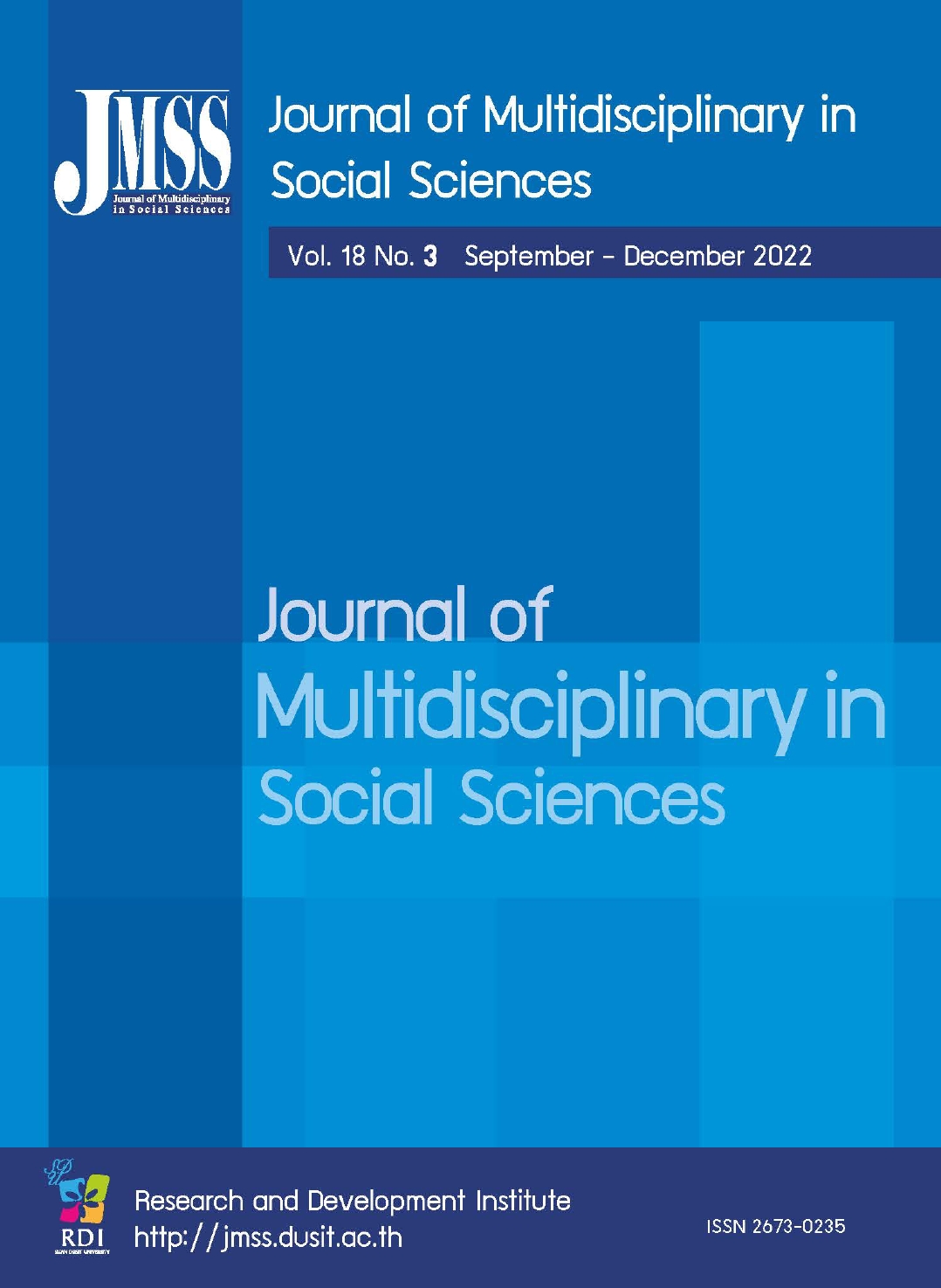Factors Affecting Online Learning for Undergraduate Students in Medical Records Major, Mahidol University
Keywords:
Online Learning, Medical Records ProgramAbstract
An efficient online teaching and learning system will influence the learning outcomes of students based on a variety of elements, such as the teacher, the student, the equipment, the technology, etc. This study's aims were to investigate the knowledge and understanding of lessons learned, teaching satisfaction, factors impacting online learning, challenges and suggestions for improving online teaching and learning management, and satisfaction with teaching. All the students enrolled in online courses of the Bachelor of Science Program in Medical Record during the first semester of the 2021 academic year were surveyed. The sample consisted of 108 participants who completed an online questionnaire (Google Form) and a focus group interview with representations of students from all courses (2 individuals each year, for a total of 8 individuals). The results indicated that the overall knowledge and comprehension of online learning lessons for all subjects averaged a 6.62 score (10 score), with the highest level of satisfaction being associated with online teaching. Statistics Multiple regression analysis revealed that both the students' and teachers' levels of preparedness increased over time. This resulted in an increase in lesson comprehension that was statistically significant at the 0.05 level. The student readiness variables and the teacher's readiness for teaching and learning were capable of predicting the lessons' knowledge and comprehension. Student readiness (Beta = 0.485) and instructor readiness (Beta = 0.330) were highly predictive variables, together predicting 46.7 percent of the variance. The strategies for the development of online teaching and learning management systems should encourage teachers to be prepared for online teaching and learning. The use of Google Classroom in conjunction with the Webex program will assist in preparing teachers to use non-boring teaching techniques and modern technology to develop self-learning materials through E-learning or other knowledge sources such as Mux SPOC or MOOC, due to the fact that there are a variety of teaching styles and the ability to create content that can be applied to real-world situations. Teachers should promote connection or communication with their students.
References
Bolliger, D.U., Wasilik, O. (2008). Factors influencing faculty satisfaction with online teaching and learning in higher education. Researching education. https://doi.org/10.1080/01587910902845949
Burd, B.A., & Buchanan, L.E. (2004). “Teaching the teachers: teaching and learning online”, Reference Services Review, Vol. 32 No. 4, pp. 404-412. https://doi.org/10.1108/00907320410569761
Coman, C., T îru, LG., Mesesan-Schmitz, L., Stanciu, C., Bularca, MC. (2020). Online teaching and learning in higher education during the coronavirus pandemic: Students’ perspective. Sustainability, 12, 10367.
Hung, M.L., Chou, C., Chen, C.H., Own, Z.Y. (2010) Learner readiness for online learning: Scale development and student perceptions. Computers & Education. 55(3):1080-1090.
Hamid, S., Waycott J., Kurnia, S., Chang, S. (2015). Understanding students' perceptions of the benefits of online social networking use for teaching and learning. The Internet and Higher Education. Volume 26, Pages 1-9.
Heather Kauffman. (2015). A review of predictive factors of student success in and satisfaction with online learning. Research in Learning Technology Vol. 23. 26507, http://dx.doi.org/10.3402/rlt.v23.26507
Fatonia , Arifiati N , Nurkhayati E , Nurdiawati E, Fidziah, Pamungkas G., et al. (2020) University students online learning system during Covid-19 pandemic: Advantages, constraints and solutions. Sys Rev Pharm.11(7):570-576.
Kauffman, H. (2015). A review of predictive factors of student success in and satisfaction with online learning. Research in Learning Technology, 23: 26507 - http://dx.doi.org/10.3402/rlt.v23.26507
Kim, K.J., & Bonk, C.J. (2006). The future of online teaching and learning in higher education: The survey says… Number 4, EDUCAUSE QUARTERLY. Page 22-30.
Louise Nemanich, Michael Banks, Dusya Vera. (2009). Enhancing knowledge transfer in classroom versus online settings: The interplay among instructor, student, content, and context. Decision Sciences Journal of Innovative Education. Online 16 January 2009. https://doi.org/10.1111/j.1540-4609.2008.00208.x
Martin, F., Sun, T., Westine, C.D. (2020). A systematic review of research on online teaching and learning from 2009 to 2018. Computers & Education. 159,104009, Available online 9 September 2020.
Popa, D., Repanovici, A., Lupu, D., Norel, M., & Coman, C. (2020). Using mixed methods to understand teaching and learning in COVID 19 times. Sustainability, 12, 8726; doi:10.3390/su12208726
Sobaih, A. E.E., Hasanein, A.M., Abu Elnasr, A.E. (2020). Responses to COVID-19 in higher education: social media usage for sustaining formal academic communication in developing countries. Sustainability, 12, 6520.
Sun, A., & Chen, X. (2016). Online education and its effective practice: A research review. Journal of Information Technology Education: Research, 15, 157-190. Retrieved from http://www.informingscience.org/Publications/3502
Tanis, C.J. (2020). The seven principles of online learning: Feedback from faculty and alumni on its importance for teaching and learning. Research in Learning Technology, 28: 2319 - http://dx.doi.org/10.25304/rltv28.2319
Wiesenberg, F. & Stacey, E. (2005). Reflections on teaching and learning online: Quality program design, delivery and support issues from a cross-global perspective.
Young, S. (2010). Student views of effective online teaching in higher education. Researching education. https://doi.org/10.1207/s15389286ajde2002_2
Downloads
Published
How to Cite
Issue
Section
License

This work is licensed under a Creative Commons Attribution-NonCommercial-NoDerivatives 4.0 International License.








